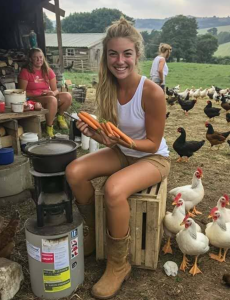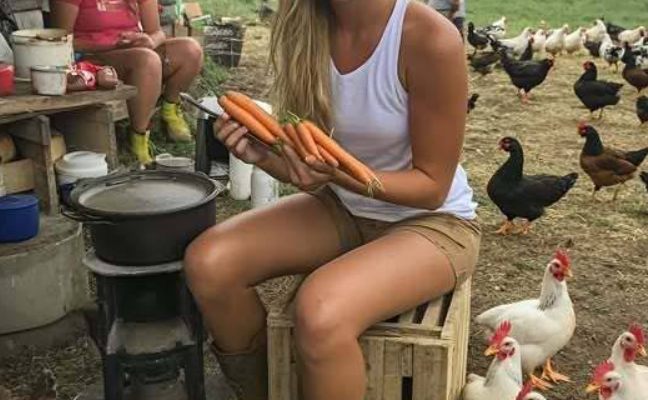
I’m a Farmer’s Daughter—And Some People Think That Makes Me Less
I’ve heard it in the way people pause after I say where I’m from. I’ve seen it in the flicker of surprise when I mention my father’s work. I’ve felt it in the subtle shift of tone, the quiet recalibration of expectations. “Oh,” they say, “you’re a farmer’s daughter.” As if that explains something. As if that defines me.
Some people think that makes me less.
Less educated. Less worldly. Less ambitious. Less capable. Less refined. Less worthy of being heard.
But I’ve come to understand that what they really mean is: less visible. Less familiar. Less legible to the stories they’ve been taught to value.
And I’ve come to understand that they’re wrong.
Because being a farmer’s daughter means I was raised in the rhythm of the land. It means I learned early that life is cyclical, that growth takes time, and that not everything can be rushed. It means I know the weight of a morning that starts before the sun and the quiet satisfaction of a day’s work done with my hands.
It means I understand patience—not the passive kind, but the active kind. The kind that watches the sky for rain and the soil for signs. The kind that waits for seeds to sprout and calves to stand. The kind that knows how to hope without guarantees.
It means I know resilience. Not the glossy kind that gets quoted in motivational speeches, but the gritty kind that shows up when the crops fail and the bills pile up. The kind that keeps going when the tractor breaks down and the weather turns cruel. The kind that learns to adapt, to mend, to make do.
It means I know community. Not just the word, but the practice. The way neighbors show up unasked when someone’s barn burns down. The way food is shared, stories are passed, and grief is held together. The way people remember your name, your parents, your dog, your dreams.
It means I know humility. Because the land doesn’t care who you are. It doesn’t bend to ego or entitlement. It teaches you to listen, to observe, to respect forces bigger than yourself. It reminds you that you’re part of something vast and ancient and alive.
And it means I know pride. Not the kind that boasts, but the kind that stands tall. The kind that comes from knowing where you come from and what you’ve survived. The kind that honors the labor of generations and the beauty of a life rooted in care.
So when people think being a farmer’s daughter makes me less, I smile. Not because I agree, but because I know they’re missing something.
They’re missing the poetry of early morning mist rising over fields. They’re missing the quiet dignity of hands calloused from work. They’re missing the wisdom of seasons and the intimacy of tending. They’re missing the stories etched into the land and the love that grows in the spaces between.
They’re missing me.
Because I am not less. I am layered.
I am the girl who learned to drive a tractor before she learned to parallel park. I am the teenager who read poetry in the hayloft and dreamed of cities she’d never seen. I am the woman who carries the scent of soil in her memory and the strength of her mother’s hands in her own.
I am the daughter of a farmer—and that makes me more.
More grounded. More attuned. More aware of the invisible threads that bind us to each other and to the earth.
More capable of holding contradiction. Of being both tender and tough. Of knowing that beauty can bloom in unexpected places.
More willing to question the stories that tell us who matters and why.
And more determined to rewrite them.
Because the truth is, the world needs more farmer’s daughters. More people who understand interdependence. More people who know how to care for what they cannot control. More people who have learned, through lived experience, that growth is not always visible, and that value is not always loud.
We need more people who can hold grief and joy in the same breath. Who can witness loss without turning away. Who can celebrate small victories and endure long winters.
We need more people who know how to listen to the land—and to each other.
So I carry my story with pride. I wear it like a second skin. I speak it into rooms that weren’t built for me, and I plant it in conversations that didn’t expect it.
I tell it not to defend myself, but to invite others in.
To say: Look again.
To say: There is beauty here.
To say: You don’t have to understand everything to honor it.
And to say: I am here. I am whole. I am worthy.
Not in spite of where I come from—but because of it.

